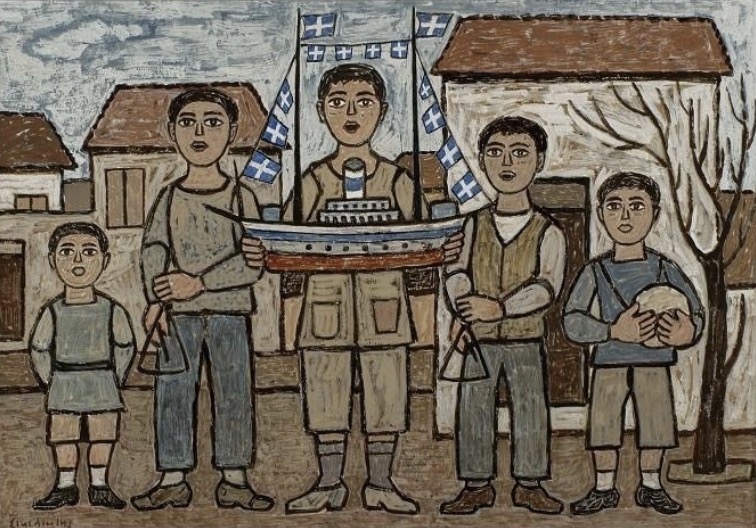By Victoria Loutas
When Christmas Eve comes around in Greece, plenty of young children get ready to go out to take part in the Christmas Kalanda. Christmas Kalanda is a long lived tradition in Greece where young Greek children go door to door singing Christmas Carols!
Christmas caroling takes its roots in Ancient Greece where young children would carry small boats and sing songs honouring Dionysius. By honouring their god, Greeks began the tradition of praising the head of the household, which has since been continued into Christmas Carolling.
The sentiment between these two acts of praise is similar, as young children are wishing homeowners health, wealth and happiness through songs they sing.

Young children often perform in groups and bring along instruments to accompany their songs. They will knock on a person’s door and first ask, ‘Na Ta Poume?’, asking if they may sing. The answer is almost always yes, and the children sing a sweet Christmas carol and are often invited in afterwards for a Greek treat.
There are dozens of different Greek Christmas Kalanta that are specific to different regions in Greece, but we’ve listed some of the most popular Greek Christmas Carols that everyone should know!
Trigona Kalanta
Trigona Kalanta is the Greek equivalent of ‘Jingle Bells’. Christmas Carollers often carol triangles and other instruments when they sing, which is where this song got its name from!
(Video to embed in)
Kalanta Chistougenna
Kalanta Christougenna is considered the most popular Greek Christmas Carol! It simply translates to Christmas Carol and is a favourite among most Greek households. Follow the lyrics below to sing with your family this Christmas!
kalin esperan arhontes
an ine orismos sas
Xristu ti thia genissi
Na po st’ arhontiko sas
Xristos gennate simeron
en Vithleem ti poli
I ourani agalonte
Herete I fissis oli
en to spileo tiktete
en fatni ton alogon
o vassilefs ton ouranon
ke piitis ton olon
plithos agelon psalousi
to doksa en ipsistis
ke touton aksion esti
I ton pimenon pistis
Ek tis Persias erxonte
tris magi me ta dora
Astro lambro tous odigi
Xoris na lipsi I ora
S’afto to spiti pou’pthame
petra na mi ragisi
ki o nikokiris tou spitiou
Xronia polla na zisi
Agia Nixta
Agia Nixta is a Greek Christmas Carol meaning ‘Holy Night’. This charming song is short, but sweet and is a popular choice for carollers!
